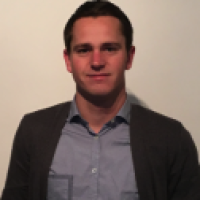
Jasper Paul Simons (European University Institute): "FDI-led development and post-crisis diversity in the political economies of the Visegráds" (Külföldi beruházások által vezetett fejlődés és a válság utáni sokszínűség a Visegrádi országok politikai gazdaságában)
A politikai gazdaságtan szakirodalma szerint a visegrádi országok ugyanazon gazdasági fejlődési modellel rendelkeznek: egy külföldi (gyártási) beruházástól vezérelt modellt honosítottak meg. A 2007-es válság kitörése után azonban a visegrádi országok eltérő utat választottak gazdaságpolitikájuk szempontjából. Egyrészről Magyarország és Lengyelország alternatív vagy szokatlan gazdasági megközelítést alkalmazott olyan kulcsfontosságú politikai területeken, mint például a pénzügy, az iparpolitika és a jóléti állam. Másrészt a Cseh és a Szlovák Köztársaság nagyrészt fenntartotta vagy akár javította a liberális-internacionalista status quo-t, amely meghatározta az előző időszakot. Az előadás felveti a kérdést, hogy jött létre ez a különbség. Annak a kettős feltételezésnek a alapján, hogy a kapitalista gazdaságokat a győztes és a vesztes csoportok közötti elosztási harcok határozzák meg, és a politika magában foglalja az ezekkel a küzdelmekkel kapcsolatos politikai dilemmákról és kompromisszumokról hozott döntéseket, a magyarázat felhívja a figyelmet különböző aktorok heterogén (sikertelen) politikai mozgósítására. Bár a Visegrádi országokat összehasonlító perspektívába helyezi, a bemutató elsősorban a magyar eset magyarázatára összpontosít. Bemutatja, hogy a politikai és közgazdasági szereplők miként használták ki a gazdasági és politikai elégedetlenséget annak érdekében, hogy átalakítsák a magyar gazdaságot.
Angol nyelvű összefoglaló:
After less than two decades of post-communist transition, the Visegrád countries entered the European Union as internationally integrated liberal market economies. Despite substantial differences, the Visegráds are considered by comparative political economy scholarship to have converged onto the same economic growth model: the dependent (manufacturing) FDI-led development model. Based on a mutually beneficial marriage of cost-efficiency for multi- or transnational corporations and economic development for the Visegráds, the latter enjoyed considerable macroeconomic success and became institutionally distinct from their Central and Eastern European peers. However, after the eruption of the 2007 crisis, the Visegrád economies have diverged in terms of their economic policy trajectories. On the one hand, Hungary and Poland have taken an alternative or unorthodox economic approach in key policy areas such as finance, industrial policy and the welfare state. On the other, the Czech and Slovak Republics have largely maintained or even enhanced the liberal-internationalist status quo that defined the preceding period. This PhD project takes up the question why this divergence emerged. Starting from the dual assumption that capitalist economies are defined by distributional struggles between winner and loser groups, and politics involves making decisions about policy dilemmas and trade-offs related to these struggles, the explanation focuses on the (un)successful mobilisation of actor coalitions in favour of particular policy approaches. In order to answer this question, the thesis employs a process tracing approach of contemporary policy developments which, however, are embedded into the region’s specific historical context. In doing it so it combines statistical data, primary documents such as policy reports and self-acquired interview data. While the thesis contributes equal importance to each of the Visegráds, Jasper Simons will primarily present the results of his research so far and therefore focuses on the Hungarian case study.
Helyszín: Humán Tudományok Kutatóháza PTI Körtárgyaló 1097 Budapest, Tóth Kálmán u. 4. T.2.28. (T épületszárny, 2. emelet 28.)
Az előadás nyelve: angol


